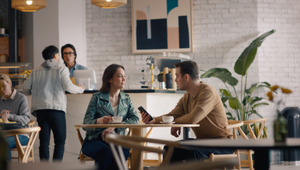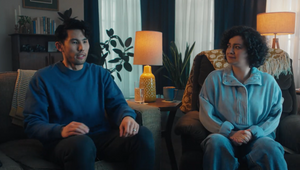
What I’ve Learned Managing an Agency in the Midst of a Pandemic

We began 2020 with a business plan for growth and our clients kicked off the year with strong business results. We were hiring and looking forward to further organic growth while making plans to dial up our new business efforts. It appeared the year 2020 was going to be a good one.
Suddenly, around March 13th the world changed.
We told our staff that they should work from home. Our clients shut down their offices too. With the exception of essential services, the government shut down public space and entire sectors of business ground to a sudden halt. Suddenly we were in an existential battle with a virus and staring in the face of a global pandemic.
Quickly, meetings migrated to conference calls and video conferencing. The question was not whether budgets were going to be cut, but by how much. Messaging shifted to recognising front line workers and yes, everyone’s messaging started to look and sound the same. But I would argue this was appropriate given the exceptional times we suddenly found ourselves in.
Traditional media took the biggest hit with the production industry largely locked down. Still, ads were created, and digital media fared somewhat better with on-line marketing and e-commerce exploding.
Working from home, our teams pulled together to reset. We were suddenly experiencing a crash course on how to work remotely. Much to my surprise, it worked.
Our staff displayed great resiliency. Some people found themselves working harder than pre-Covid19. We opened the lines of communication and our staff took comfort in our transparency. People appreciated that we maintained full employment. While some were motivated by anxiety of a shrinking job market and increasing unemployment, an equal number of people took up the challenge of helping our clients get more than their fair share of whatever business was available.
As we approach the next phase “recovery” businesses are tentatively re-opening, consumers are returning to shopping, ad budgets are stabilising, and green shoots of optimism are replacing remaining concerns.
Still, not all industry sectors are recovering quickly. As an example, travel and tourism, restaurants, sports and entertainment remain challenged and may never quite be the same. But again, people are resilient, and habits are hard to break. So, it’s not if business will recover, but how and when.
While we won’t know for some time whether this will be a “V”, “U” or “W” shaped recovery, it is clear that there is a huge desire to make up for lost time. To be clear, things remain far from normal, but the “new normal” is not as scary as once thought.
As we start to look ahead and make some predications about the future of working at an ad agency, there are a few lessons we can learn from managing an agency in the midst of a pandemic.
Embrace change. Change presents a number of challenges and uncertainties but is not as challenging to achieve when everyone is on board. The best thing you can do is encourage your staff to embrace this new normal and provide the necessary support to ease the transition.
Monitor the situation closely. This goes without saying. Every business has a need to know how things are evolving, because things do change, every day. Make sure you understand where the money is going and prepare to pivot as needed.
Be transparent. In my experience, people respond well to open and honest communication. Especially now, it’s up to the leaders of every organization to step up, be present and keep the lines of communication open.
We’ve come a long way and learned a lot in a short amount of time. Now it’s up to us to apply the lessons and be ready to change again. Until there is a vaccine, remote work will be a continued reality, for some it is even preferable. And while we can prepare for this, many questions still remain about the future of advertising. Will separation damage creativity? Will client’s embrace breakthrough work? Recent history suggests we will find new inspiration and a new way of doing things.
Norman Melamed is COO, Innocean Worldwide Canada















